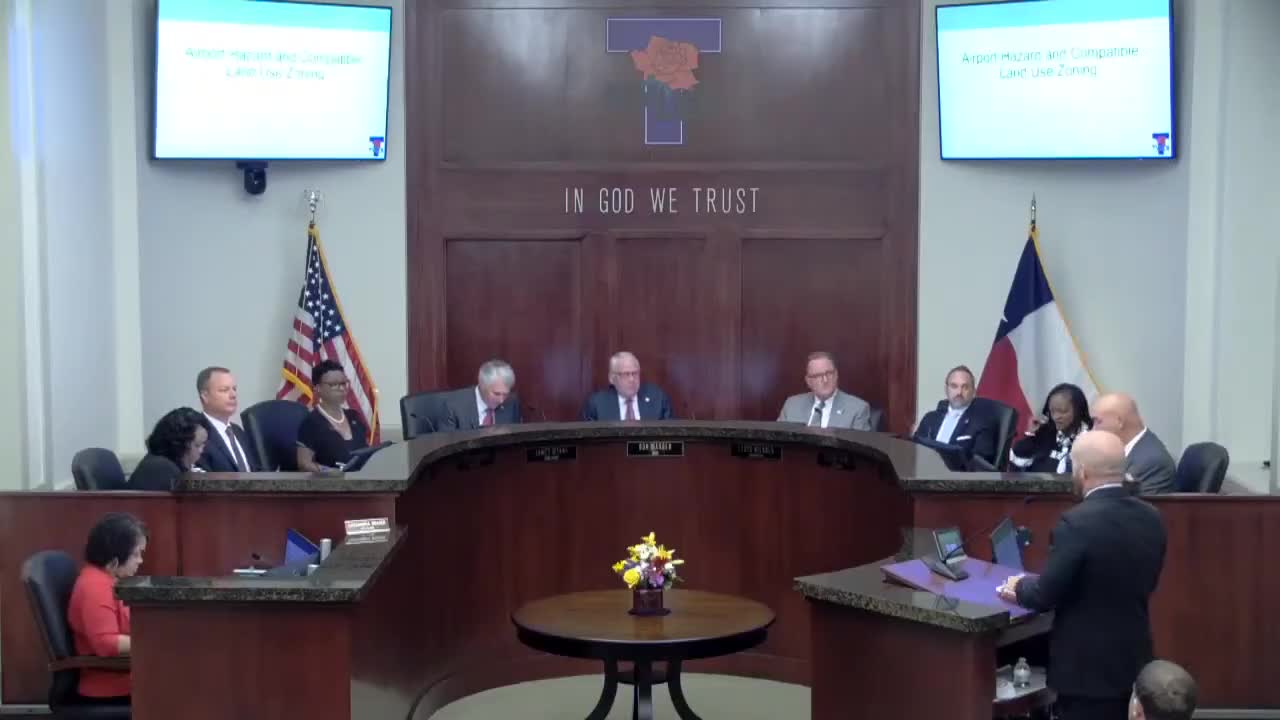Article not found
This article is no longer available. But don't worry—we've gathered other articles that discuss the same topic.
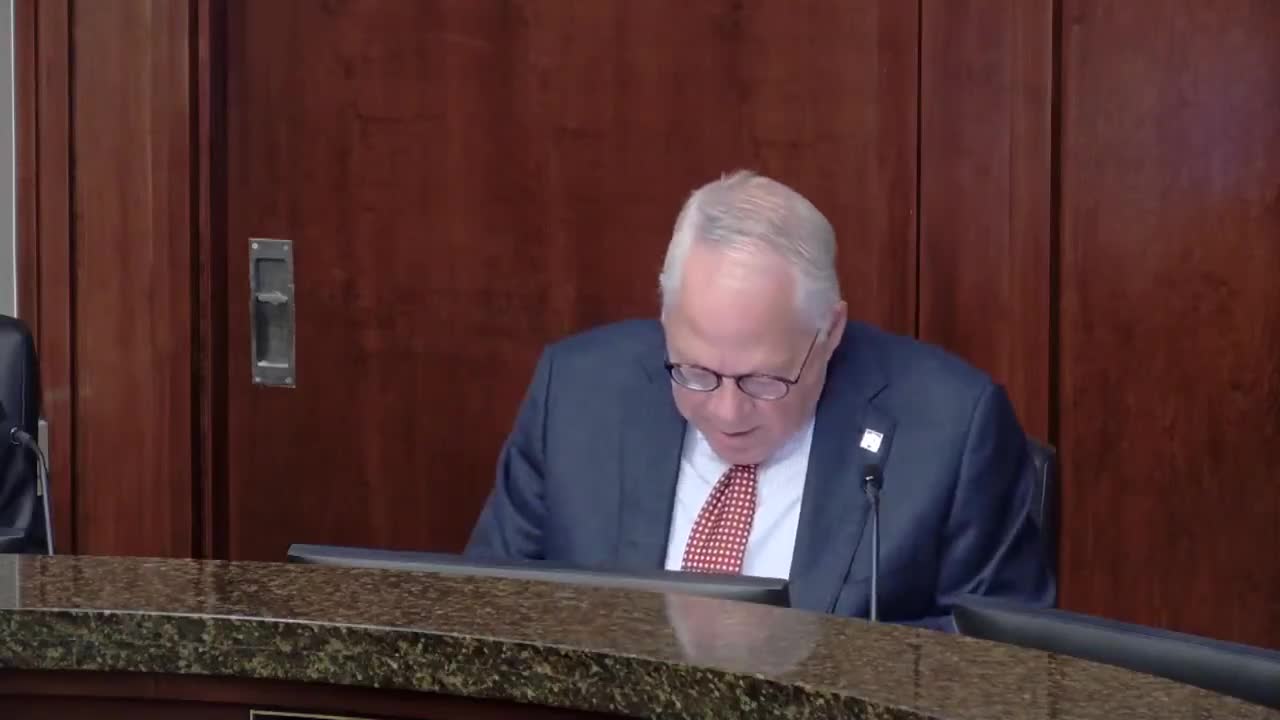
Council reaffirms tax‑abatement guidelines with no changes as state requires biennial readoption
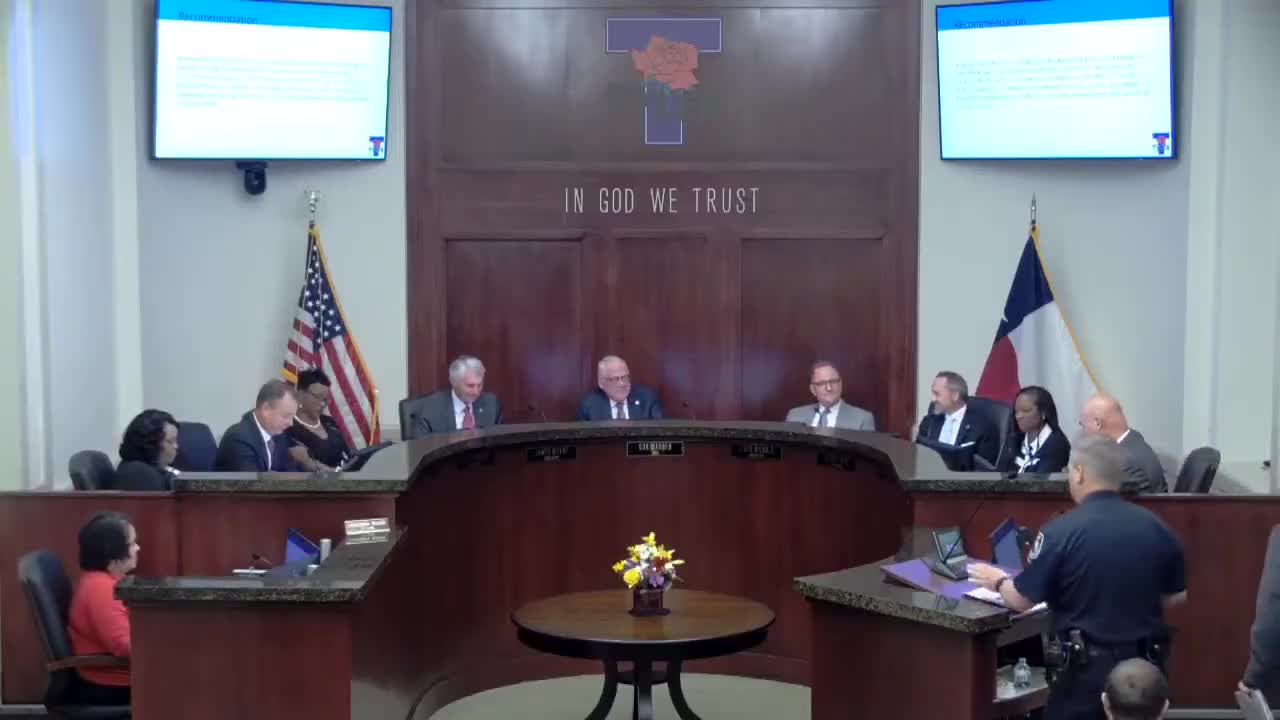
Council OKs $1.79 million renovation of police regional training center at former armory site
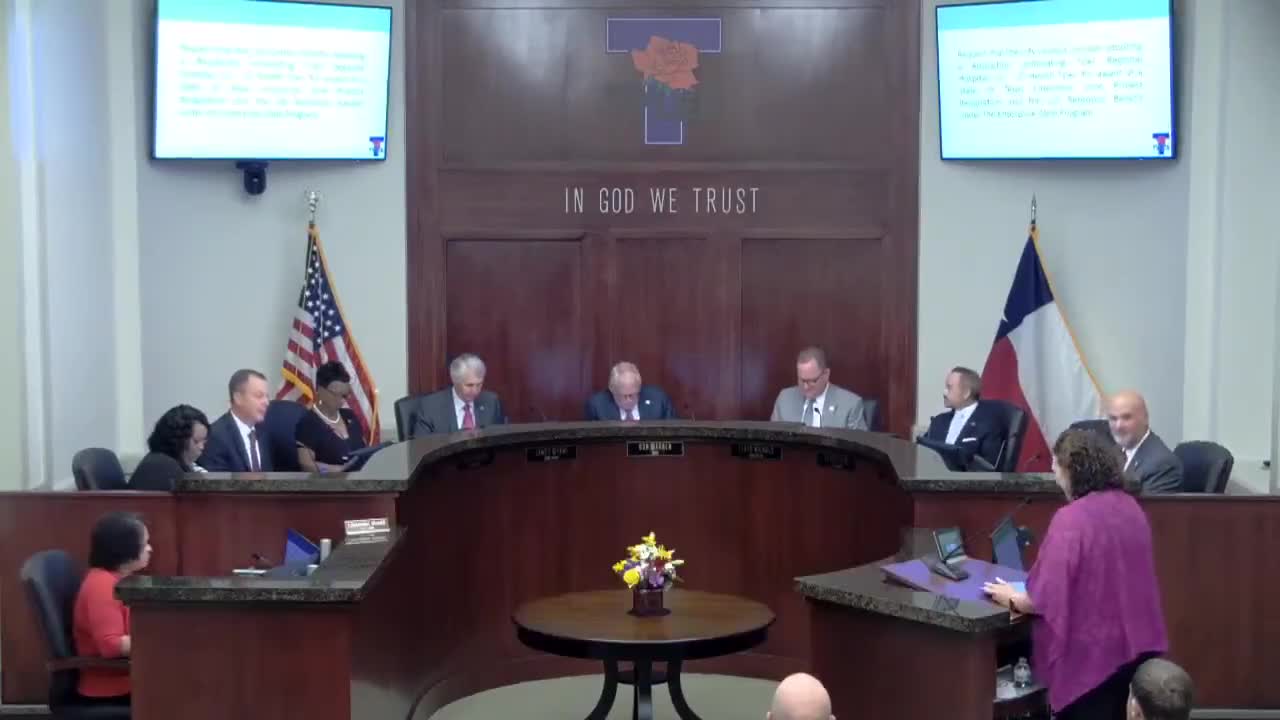
Council nominates UT Health Tyler for Texas enterprise‑zone designation and job‑retention benefits
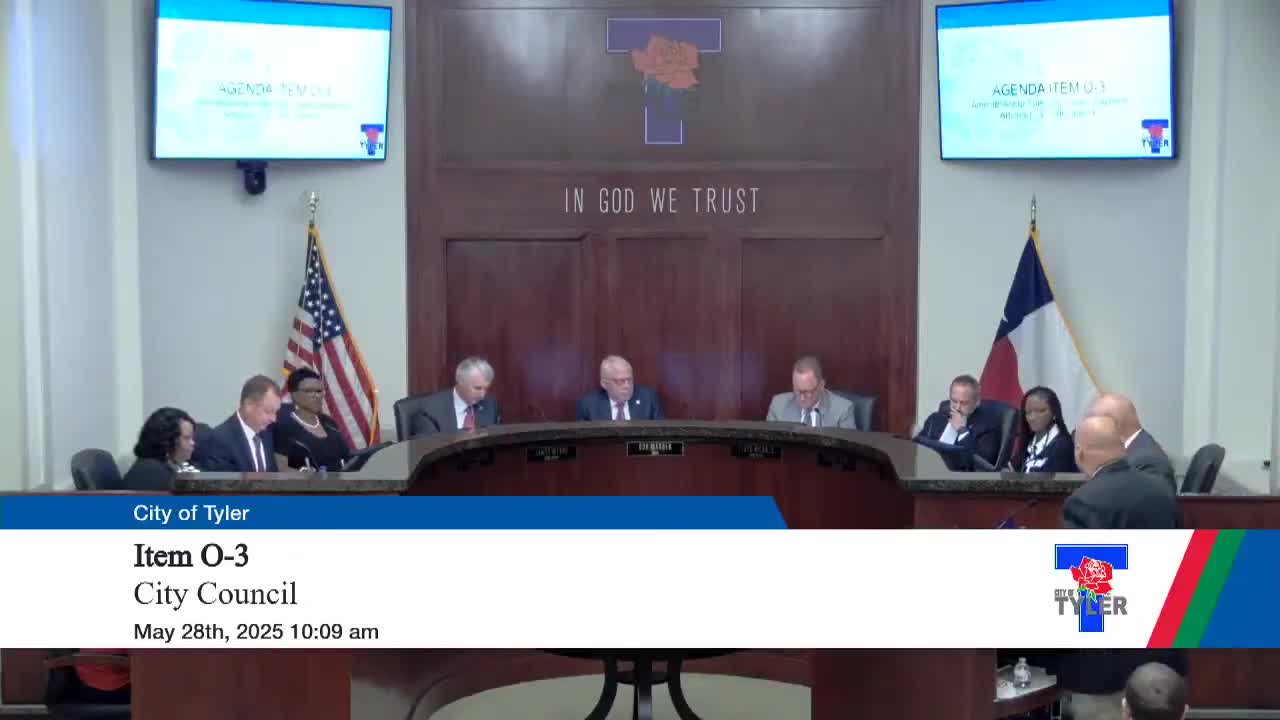
Council adopts 2024 code changes to allow A2L refrigerants; inspectors add new pressure‑test requirement
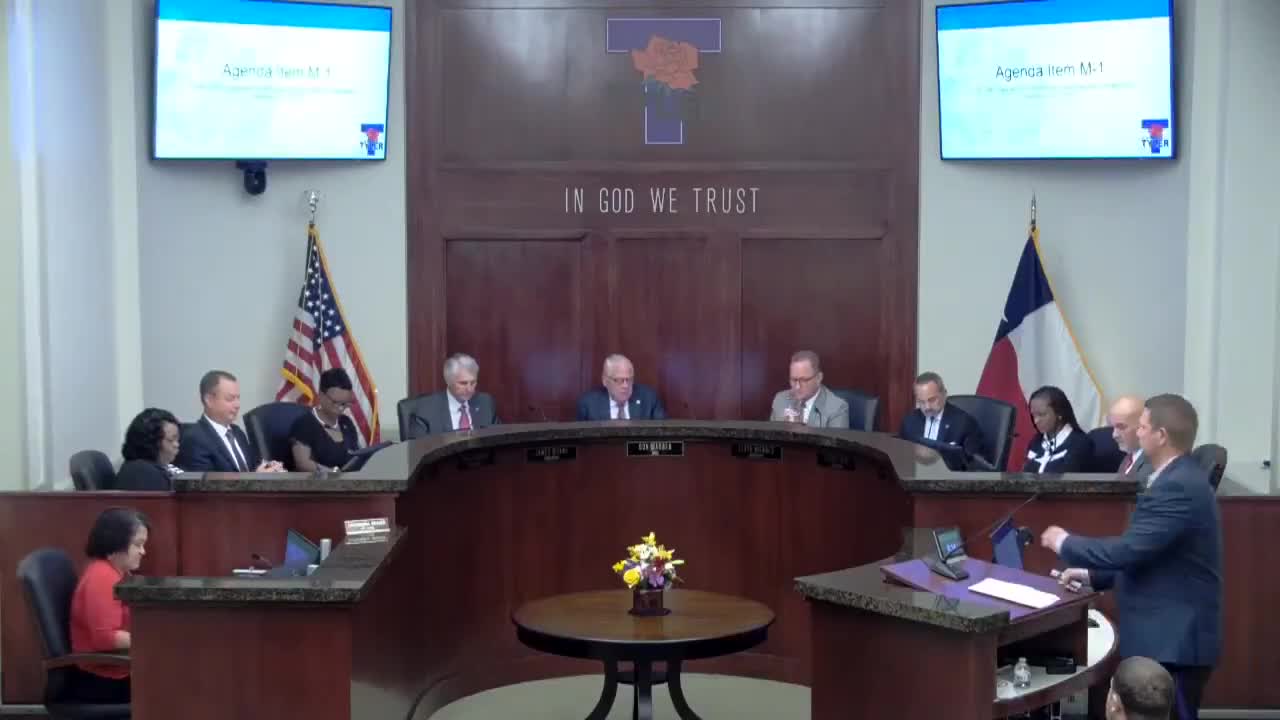
Tyler awards $14.75 million in water system contracts for pump station and 12‑inch loop
